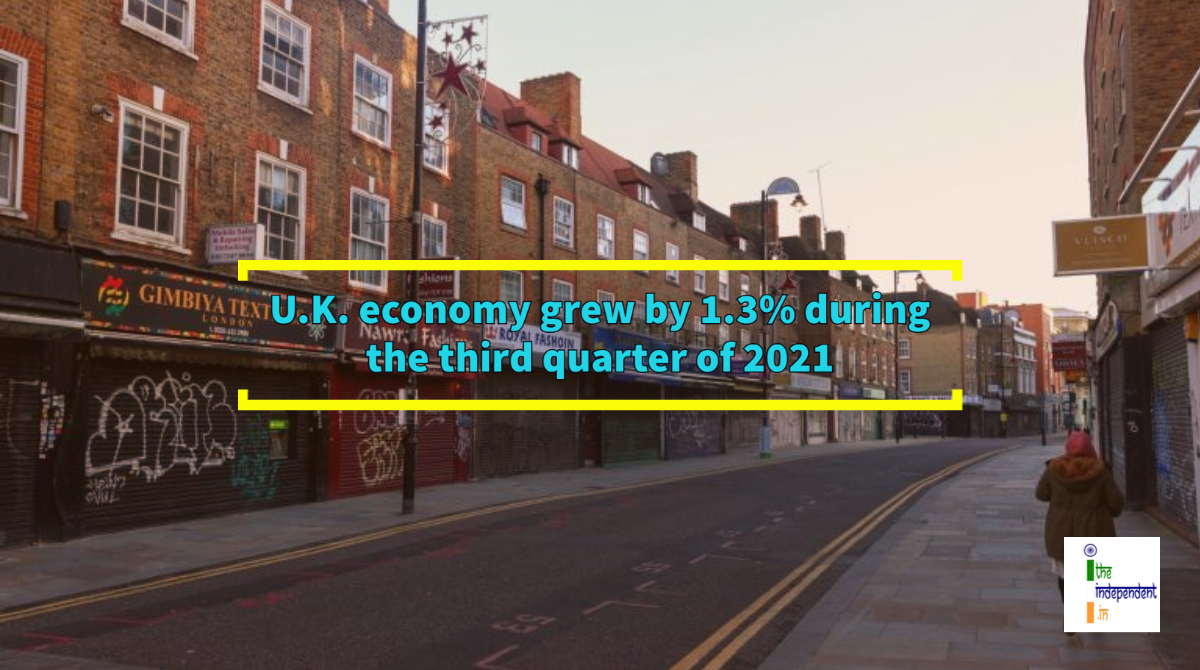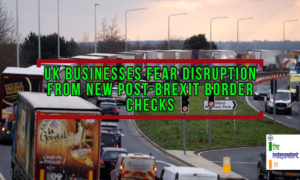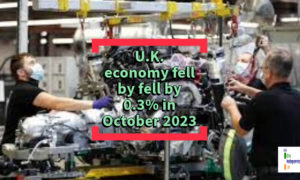
The U.K. is far from recovery from the economic impacts of COVID-19 as compared to other G7 nations
As per the latest data released by the Office of National Statistics (ONS), the United Kingdom (U.K.) economy grew by 1.3% in the July-September 2021 of the year, down from the 5.5% growth in the April-June quarter.
The U.K. is far from recovery as compared to other G7 nations. The downfall is due to the shortage of labour and lorry drivers owing to Brexit, disruption in supply chain and high energy prices.
While the GDP grew by 0.6%, the service industry was up by 0.7% and construction by 1.3%. In output terms, the largest contributors to this increase were from hospitality, arts and recreation and health following the further easing of restrictions and reopening of the economy. But the wholesale and retail trade shrank by 2.5%, hurt by weak consumer spending.
Besides, all the other G7 nations like Germany, France and Italy reported stronger growth for the third quarter and are on the path of recovery from the economic impacts of COVID-19. The United States (U.S.) has already returned to pre-COVID-19 level.
Taking it to twitter, ONS tweeted,
Across the third quarter of 2021 as a whole GDP grew 1.3% following the continued easing of #coronavirus restrictions https://t.co/LnGsAvfvsE pic.twitter.com/c4gGNaOrAP
— Office for National Statistics (ONS) (@ONS) November 11, 2021
Speaking on the occasion, the Chief Economist, ONS – Grant Fitzner said, “Growth picked up in September and the economy is now only slightly below pre-pandemic levels.”
He further said, “This latest increase was led by the health sector, boosted by more visits to GP Surgeries in England. Lawyers also had a busy month as house buyers rushed to complete purchases before the end of stamp duty holiday.”
The Bank of England has recently forecasted that economy would not gain back the output lost during the pandemic until the first part of next year. The underlying imports during the quarter grew by 5.9% led by 11.2% growth outside European nations. Total underlying exports also grew by 1.9% led by a 5.7% growth to European Union (E.U.).
ONS further tweeted,
Total underlying goods imports grew £2.3bn (5.9%) in September led by a £2.2bn (11.2%) growth in imports from non-EU countries.
— Office for National Statistics (ONS) (@ONS) November 11, 2021
Total underlying goods exports grew £0.5bn (1.9%) in September 2021 led by a £0.7bn (5.7%) growth in exports to the EU https://t.co/FLYUr7D7Ko pic.twitter.com/6fOisZwj6q
The experts believe that British Prime Minister Boris Johnson should be worried about getting the economy on track and should focus less of tackling climate issues at COP 26 in Glasgow, Scotland.
Compared to last year, the economy shrank by 20.4% in the second quarter of 2020, suffering a bigger contraction than any other major economy as recession hit it hard due to COVID-19 led lockdowns. The U.K. witnessed the biggest contraction than any other G7 country at 9.7%.







